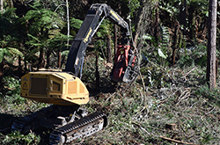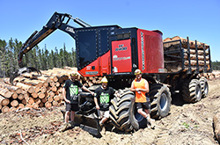
A 10% U.S. tariff on all softwood lumber and timber imported from New Zealand will have significant financial repercussions on New Zealand’s forest growing industry, says the New Zealand Forest Owners Association (NZFOA).
Announced by United States President Donald Trump at the end of September, the tariff was the outcome of the Section 232 Investigation aimed at determining the effect imports of timber, lumber and their derivative products have on the U.S. supply chain and national security.
The new tariff took effect from 14 October.
NZFOA Chief Executive, Dr Elizabeth Heeg, says the tariff creates immediate challenges for both forest growers and wood processors.
“These new tariffs are disruptive for New Zealand’s forest sector at a time when confidence is vital,” she says. “They add uncertainty and risk for exporters who are working hard to build long-term, sustainable supply chains benefiting both countries.”
The U.S. is New Zealand’s largest export market for sawn timber and sleepers and the second largest market for panels. In 2024, the U.S. imported approximately $370 million worth of radiata pine products from New Zealand, making it the third-largest export market for value-added forest products.
“Bilateral trade between New Zealand and the U.S. benefits both parties,” Ms Heeg says. “Our products help fill supply gaps in the U.S. housing and construction sectors, particularly where domestic alternatives are limited.
“While this tariff is less severe than the 50% rate first considered by the U.S. government, it still represents a barrier to continued growth in this market for growers, processors and exporters.”
The NZFOA says it will continue to work alongside its members, industry partners and government agencies to respond constructively to the change, including actively seeking to diversify and expand into new markets.
“Our Association is committed to advocating for the forest sector and to finding practical solutions to navigate this development. We will continue to engage with our colleagues in the wood processing sector and the New Zealand Government to advocate for our timber trade.”









